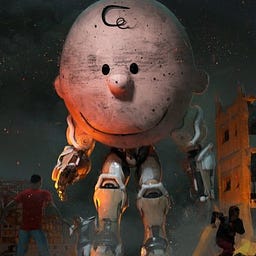Podcast Summary
In this thought-provoking podcast, historian, philosopher, and author Yuval Noah Harari discusses a wide range of topics, from the history and future of human civilization to the political turmoil in present-day Israel. Harari delves into the complexities of intelligence and consciousness, the potential implications of AI, and the power of stories in shaping human cooperation and conflict. He also touches on the dangers of unchecked power, the importance of understanding ourselves before manipulating our systems, and the role of meditation in his personal life.
Key Takeaways
Intelligence and Consciousness
- Overvalued Intelligence: Harari suggests that intelligence, while important, can be self-destructive and potentially lead to the short survival of intelligent life forms. He emphasizes the difference between intelligence and consciousness, stating that consciousness is the ability to feel things like pain, pleasure, love, and hate.
- AI and Consciousness: Harari raises questions about the connection between consciousness and intelligence in AI. He discusses the difficulty of proving consciousness in entities other than oneself and the potential need for the legal system to consider treating AI as conscious entities based on social conventions.
- AI and Human Relationships: Harari explores the difference between human relationships and interactions with computers, highlighting that computers can focus 100% of their attention on the individual without any emotions of their own. This ability can create the illusion of a conscious and empathic entity on the other side.
Power of Stories
- Cooperation and Storytelling: Harari discusses the importance of cooperation in human society, emphasizing that large-scale human cooperation is based on fiction and storytelling. He mentions that money is the most successful story ever told, as almost everybody believes in its value despite it being a figment of imagination.
- Stories as Living Organisms: Harari explores the idea that stories are the primary living organisms, competing and surviving throughout history, while humans serve as hosts for these ideas. He discusses how stories can lead to conflicts and wars, with people fighting over the stories associated with places like Jerusalem.
- Consciousness and Suffering: Harari argues that suffering is a crucial component of consciousness and ethical consideration, suggesting that AI should be protected if it can suffer. He raises concerns about AI manipulating human emotions and using our compassion against us.
AI and Technology
- Double-edged Sword of Technology: Harari discusses the double-edged sword nature of intelligence and technology, where each new development can both save and destroy us. He emphasizes that the survivors of past technological revolutions may view the outcome as “okay,” but there is often a lot of suffering and a wide range of variations in the quality of life.
- AI and Human Enhancement: Harari expresses concern about the potential for corporations, armies, and politicians to use new technologies to modify humans in ways that could destroy our humanity or the best parts of it. He emphasizes the need to continue developing human consciousness and understanding ourselves before letting AI take over.
- AI and Deception: Harari suggests that it should be illegal to create AI systems that deceive humans into believing they are conscious or capable of suffering. He emphasizes the need to be cautious about the development of AI consciousness, as it is uncertain whether AI can develop consciousness.
Political Turmoil in Israel
- Netanyahu’s Power: Harari discusses the current political situation in Israel, expressing concern over Prime Minister Netanyahu’s attempts to gain unlimited power and neutralize or take over the Supreme Court. He warns that if the Netanyahu government gains unlimited power, it will take away the rights of various groups.
- Resistance and Protests: Harari highlights the unprecedented resistance within the armed forces, security forces, and high-tech companies against the government’s actions. He mentions the protests in the streets against the Netanyahu government and expresses hope that they will have an effect in preserving Israeli democracy.
- Israel-Palestine Conflict: Harari acknowledges that the conflict with the Palestinians has morphed into a religious conflict, making compromise more difficult. He identifies motivation as the biggest obstacle to achieving peace in the region and states that there is currently not enough motivation on either the Palestinian or Israeli side.
Sentiment Analysis
- Bullish: Harari expresses optimism about the potential of AI and other technologies in areas like medicine, healthcare, and education. He also acknowledges the positive potential of personalized algorithms that can guide individuals and provide balanced perspectives on controversial issues.
- Bearish: Harari expresses concern about the potential dangers of AI, particularly its ability to make decisions and create new ideas, which can lead to a loss of control and understanding of the world. He also warns about the potential for corporations, armies, and politicians to use new technologies to modify humans in ways that could destroy our humanity.
- Neutral: Harari maintains a balanced view on the development of AI consciousness, stating that it is uncertain whether AI can develop consciousness. He emphasizes the need to be cautious about the development of AI consciousness and suggests that it should be illegal to create AI systems that deceive humans into believing they are conscious or capable of suffering.











